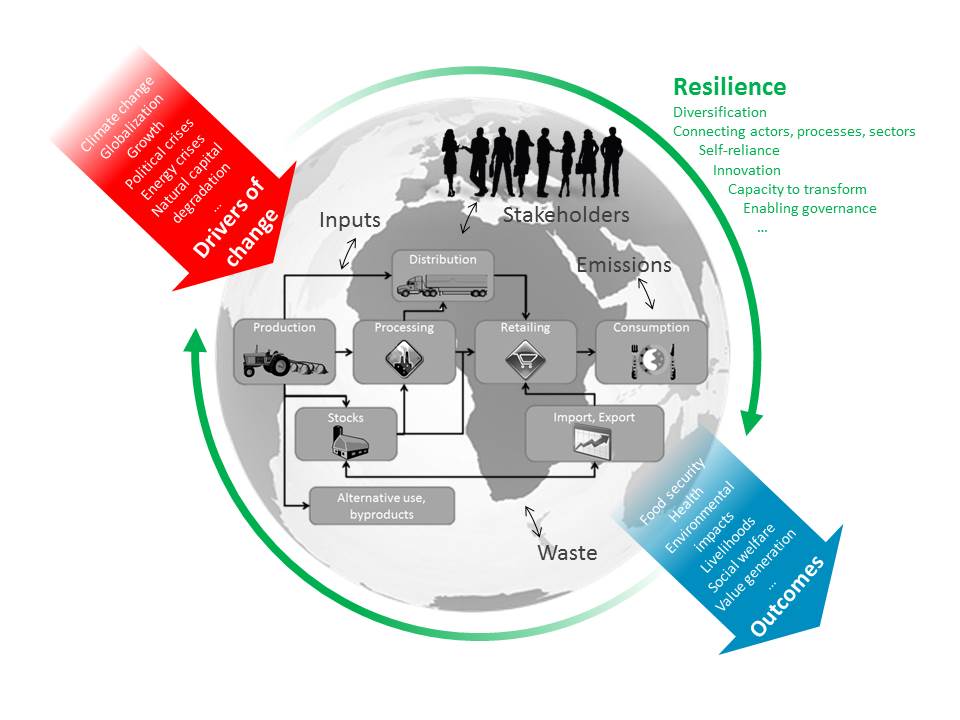Concept
Project Goals
We are developing an operational approach for decision-makers to design food systems resilience, using 2 complementary levels: semi-qualitative guidelines for the screening of issues, and a more quantitative toolkit for the detailed assessment of identified major issues.
- The Download guidelines (PDF, 1.9 MB) enable the participatory screening of whole food systems and their outcomes, the identification of potential disturbances and resilience gaps, the anticipation of unexpected consequences of policy interventions, and the iterative design of holistic interventions that manage trade-offs and exploit synergies.
- The toolkit will support the management of trade-offs between outcomes by facilitating a consistent and coherent quantitative analysis of outcomes and resilience. It will form an inventory of both new and existing, quantitative and qualitative, complementary approaches, and provide guidance on their application and combination according to each context
These materials will be developed and tested through interdisciplinary case studies with stakeholder participation, which will enable the collection of much-needed empirical knowledge on food system resilience.
Expected outputs and impact
The guidelines and toolkit will contribute to food systems resilience in several ways:
- Support decision-making in practice.
- Generate a database of knowledge, empirical data, and experience in food systems resilience through case studies.
- Extend resilience mind-set of stakeholders and future food system leaders, through stakeholder participation in the case studies, and academic education activities.
- Create connections between stakeholders, and support knowledge and information exchange.
